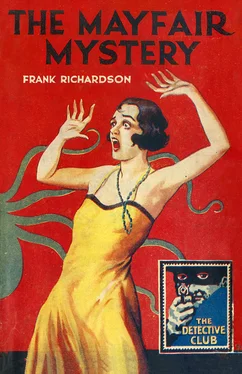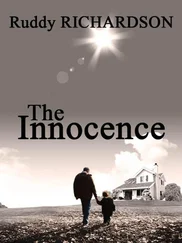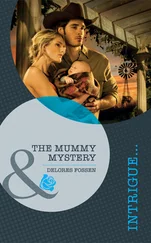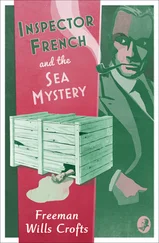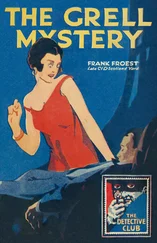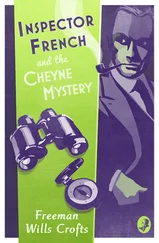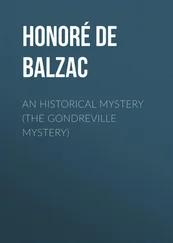‘Yes, yes?’
‘I let myself in with the latchkey and went into the sitting-room, which is at the back of the house on the ground floor, the second room from the front. The front room is not furnished. And there I saw Clifford lying on the floor—dead.’
The barrister was silent at the horror.
‘Dead,’ he whispered at last. ‘My oldest friend, my best friend! What could have happened?’
‘That’s the mystery,’ answered Reggie. ‘That’s the extraordinary thing. What does a man, a man in robust health and strength die of…like that?’
‘Heart disease?’
Reggie shook his head.
‘No, not in this case. I know, in fact, that only three days ago Clifford went to his Life Insurance Office and increased his insurance enormously. Besides,’ and he shrugged his shoulders, ‘you know perfectly well that he was sound in wind and limb. You have shot with him. You know how deuced strong he was. Not an ounce of superfluous flesh on his body. No, no, it wasn’t heart disease.’
‘Then you suspect…’
Reggie leant over:
‘I suspect nothing. I’m afraid they may suspect me…the police may suspect…me.’
Harding threw himself back in his chair and drew a long breath.
‘Have you told the police?’
‘No, I came straight here. I thought it would be better to come straight here. But the police must be called in. You see how much worse it makes it for me if I don’t call them in at once.’
Harding rose from his chair and stood by the mantelpiece.
‘I can’t believe it!’ he said, ‘I can’t believe it! Isn’t it possible that you’re mistaken?’ he said, snatching at a hopeless gleam of hope.
Reggie shook his huge, flabby head.
‘No, no chance of that. I know death when I see it. I was in the Boer War, you remember. Besides, his chin had dropped; his eyes were staring. Poor chap, he was very good to me.’
Quickly Harding spoke:
‘I will go with you to the house. We must go at once. This is a terrible affair. No, we won’t take a cab. We must walk.’
The two passed out into South Audley Street.
They walked rapidly in the direction of King Street.
There was a quick fire of questions and answers.
‘Where did he dine?’
‘I don’t know.’
‘What time did he leave the house?’
‘At seven-thirty.’
‘Was he dressed?’
‘Yes.’
‘What time did you leave?’
‘At seven-fifty.’
‘Did he know that you were going to the Covent Garden Ball?’
‘Yes.’
‘He seems to have given you a pretty free hand?’
‘Certainly. I was practically my own master.’
‘And no one else was in the house when you went out?’
‘No one.’
‘That seems extraordinary! What about burglars?’
‘Well, you see, I don’t think that anybody would know the house is occupied. The dining-room is shut up. There is nothing to burgle. There are only a few valuable vases and bronzes that wouldn’t appeal to burglars.’
‘So he would let himself in with his key, would he?’
‘Yes.’
‘How many keys are there?’
‘Only his and mine.’
By this time they had reached the door of a small house in King Street. The house had been newly built. The bricks were red, the paint was white, and the door was green with dull red copper fittings.
Reggie opened the door, and they passed into a narrow hall and thence to the sitting-room.
Scarcely had Reggie turned the handle when he started back.
‘My God!’ he whispered, ‘someone has been here. The light has been turned out!’
CHAPTER III
THE DISAPPEARANCE OF THE CORPSE
WITH hesitating fingers he turned on the electric light, and then fell back nearly into the arms of Harding.
‘My God!’ he said. ‘It’s gone! There’s nothing on the floor!’
With wild, staring eyes he looked at Harding.
Harding returned his glance curiously. The conviction gradually growing in his mind was that Reggie had gone mad.
‘But I saw it, I saw it,’ said the other, detecting the suspicion. ‘I saw it, and I touched it. It was almost cold. It was lying there by the sofa—between the sofa and the fire. The head was on the ground. It seemed as though he might have fallen off the sofa. No, George, no. This is no hallucination. The body was there, as I told you, and it is not there now. Someone has taken it away!’
‘Thank Heaven,’ gasped Harding, ‘he may not be dead!’
‘Oh, yes,’ replied Reggie, firmly, ‘he is dead. Only the body has been taken away. That makes the mystery worse, more terrible.’
‘Come with me,’ said the lawyer, ‘this may be a matter of life and death for you. We must leave no stone unturned. I must search the house in your presence.’
And they searched it thoroughly. The kitchen door proved to be securely fastened: the windows had all been carefully closed. There was not a nook or cranny in which anyone could hide. No means of egress could be discovered.
At length, they returned to the sitting-room. Harding, who had had considerable experience of criminal work at the bar before taking ‘silk,’ felt himself completely nonplussed…provided Reggie was of sound mind. If the body on the floor was an hallucination, then the mystery ceased to exist. If his story—and he had told it lucidly and with no more excitement than the circumstances warranted—was accurate, that he had actually touched the dead man, then the mystery was so appalling as to be almost incredible. Either Clifford would return that night and, as a consequence, Reggie’s mental condition would be inquired into by people competent for such an undertaking or…or there were more things in heaven and earth…
Vainly he cast his mind this way and that, seeking a clue. Automatically he stroked the bronzes on the mantelpiece. Suddenly he took up a pair of spectacles which were lying there, open.
‘That’s curious,’ he commented. ‘I didn’t know Clifford had anything the matter with his eyes. He is one of the best shots I’ve ever seen.’
He was standing with his back to Reggie, who inquired:
‘What do you mean by that? He has the most wonderful eyesight. What makes you think he hasn’t?’
‘Why,’ exclaimed Harding, turning round, ‘these spectacles. A man does not wear spectacles if he has perfect sight.’
‘But Clifford never wore spectacles. These are not his spectacles.’
‘Are they yours or the charwoman’s?’
‘Certainly not.’
‘Who can have left them here?’
‘My dear Harding,’ Reggie answered, ‘since I have been here, not a soul has entered the house. I tell you he never receives anybody here. I don’t know what he keeps the place for except for the excuse for giving me my £500.’
‘Nonsense,’ replied Harding, ‘you could have taken £500 a year all right without his putting himself out to run such an expensive hobby as a house in King Street, even a little house like this.’
‘I tell you what it is, Harding, the whole thing beats me. I have never been able to understand why a man should have his consulting-rooms in Harley Street and sleep here. Of course, no man could live in Harley Street. It is like living in a dissecting-room. But with his reputation he could have brought his patients to…Bayswater or Tulse Hill.’
Carefully the barrister examined the spectacles. He placed them on his nose. Then he whistled.
‘These are a woman’s spectacles,’ he said. ‘I am almost sure of that. They are too small for a man’s face. And the extraordinary thing about them is that they are plain glass, practically plain window-glass. Now what has he got these here for? How did a pair of woman’s spectacles of plain glass come into the possession of an eminent medical man?’
Читать дальше
